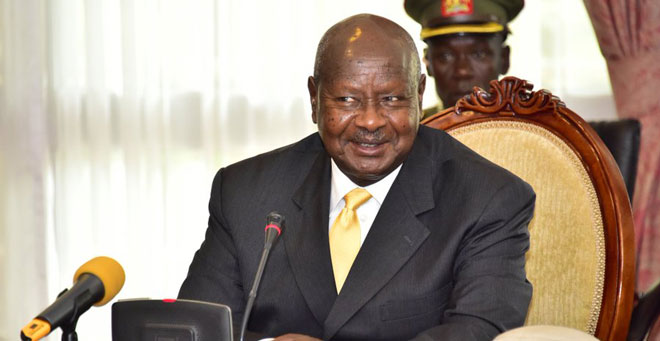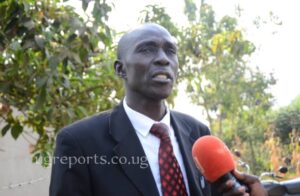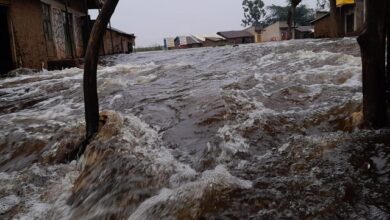Electing the President through Parliament in 2026: A viable path for Uganda’s future
For instance, Shinzō Abe was elected Prime Minister by the Japanese Parliament multiple times, ensuring stability and effective governance.

Op-Ed: Uganda’s political landscape is at a crucial juncture. As the 2026 elections approach, a compelling argument in public circles is being made about whether it would be good or badto elect the President through Parliament rather than through direct public elections.
I have a proposal that aims to address various issues that have historically plagued Ugandan elections, drawing lessons from countries that have successfully implemented similar systems.
While Article 1 of Uganda’s Constitution asserts that power belongs to the people, electing the President through Parliament does not negate this principle; rather, it ensures that the people’s representatives, elected by the populace, select a head of state in a manner that promotes stability and integrity. The populace will still have their power through their Members of Parliament who represent their views to Parliament.
Uganda’s electoral history is marred by violence and unrest, with direct presidential elections often exacerbating tensions and leading to clashes between supporters of different candidates.
Countries like South Africa, where Cyril Ramaphosa was elected by the National Assembly in 2018, and India, which has elected presidents such as Ram Nath Kovind in 2017 through an electoral college, have significantly minimized electoral violence through parliamentary votes. By adopting this model, Uganda can foster a more peaceful political environment, ensuring that the electoral process is not a trigger for conflict.
Direct elections in Uganda have been tainted by allegations of fraud, voter intimidation, and vote-buying. A parliamentary election for the presidency could mitigate these issues. Members of Parliament (MPs), being fewer in number and more closely monitored, are less susceptible to such malpractices.
This system has worked effectively in countries like Germany, where Frank-Walter Steinmeier was elected President by the Federal Convention in 2017, and Israel, where Reuven Rivlin was elected President by the Knesset in 2014, ensuring a more transparent and credible electoral process.
Electing a president through Parliament can help bridge regional and ethnic divides that often characterize direct elections. MPs represent diverse constituencies and can deliberate to choose a candidate who best embodies national unity. This approach has been beneficial in Ethiopia, where the president is elected by both houses of Parliament, fostering a sense of inclusivity and collective decision-making. For instance, Sahle-Work Zewde was elected President in 2018 by a joint session of the Ethiopian Parliament, promoting national cohesion.
The parliamentary election of the president allows for a more rigorous vetting process, ensuring that only qualified candidates with proven leadership capabilities are considered. This method has been successfully implemented in Italy, where the president is elected by an electoral college comprising both houses of Parliament and regional representatives. For example, Sergio Mattarella was elected President in 2015 through this process, ensuring the president has the confidence and support of the legislative body, and enhancing the stability and effectiveness of governance.
Direct presidential elections are expensive, requiring substantial resources for campaigning, voter education, and election logistics. Given Uganda’s limited financial resources, a parliamentary election for the presidency is a more cost-effective alternative. Countries like India, with a vast population, have demonstrated that electing a president through Parliament can significantly reduce electoral costs while maintaining democratic integrity. This model ensures that resources are used more efficiently, focusing on governance rather than expensive election campaigns.
Direct elections often lead to the rise of populist leaders who may not necessarily have the best interests of the country at heart. By contrast, a parliamentary election process encourages the selection of leaders based on merit and consensus rather than populist appeal. This approach has helped countries like Japan maintain stable and pragmatic leadership through their parliamentary election system for the prime minister, who serves as the head of government. For instance, Shinzō Abe was elected Prime Minister by the Japanese Parliament multiple times, ensuring stability and effective governance.
Uganda can draw valuable lessons from countries that have successfully implemented parliamentary elections for their heads of state. South Africa, where the President is elected by the National Assembly, has enjoyed a more peaceful and stable political environment. India, with its cost-effective and credible process of electing the President through an electoral college, serves as another model. Germany’s Federal Convention system promotes qualified and widely accepted leadership, and Ethiopia’s parliamentary election process fosters national unity and exclusivity.
Electing the President through Parliament in 2026 could be a transformative step for Uganda. It offers a pathway to reduce electoral violence, enhance integrity, promote national unity, ensure qualified leadership, and cut election costs. By learning from other nations that have adopted this model, Uganda can strengthen its democratic process and achieve more stable and effective governance. As the 2026 elections approach, it is imperative for Ugandan policymakers and stakeholders to consider this viable alternative for the betterment of the nation’s future.
The author is Asaph Blair Gumisiriza (Bitaraabe), a concerned citizen and a resident of Ntambazi in Kazo District.
Disclaimer: As UG Reports Media LTD, we welcome any opinion from anyone if it’s constructive for the development of Uganda. All the expressions and opinions in this write-up are not those of UG Reports Media Ltd. but of the author of the article.
Would you like to share your opinion with us? Please send it to this email: theugreports@gmail.com.






